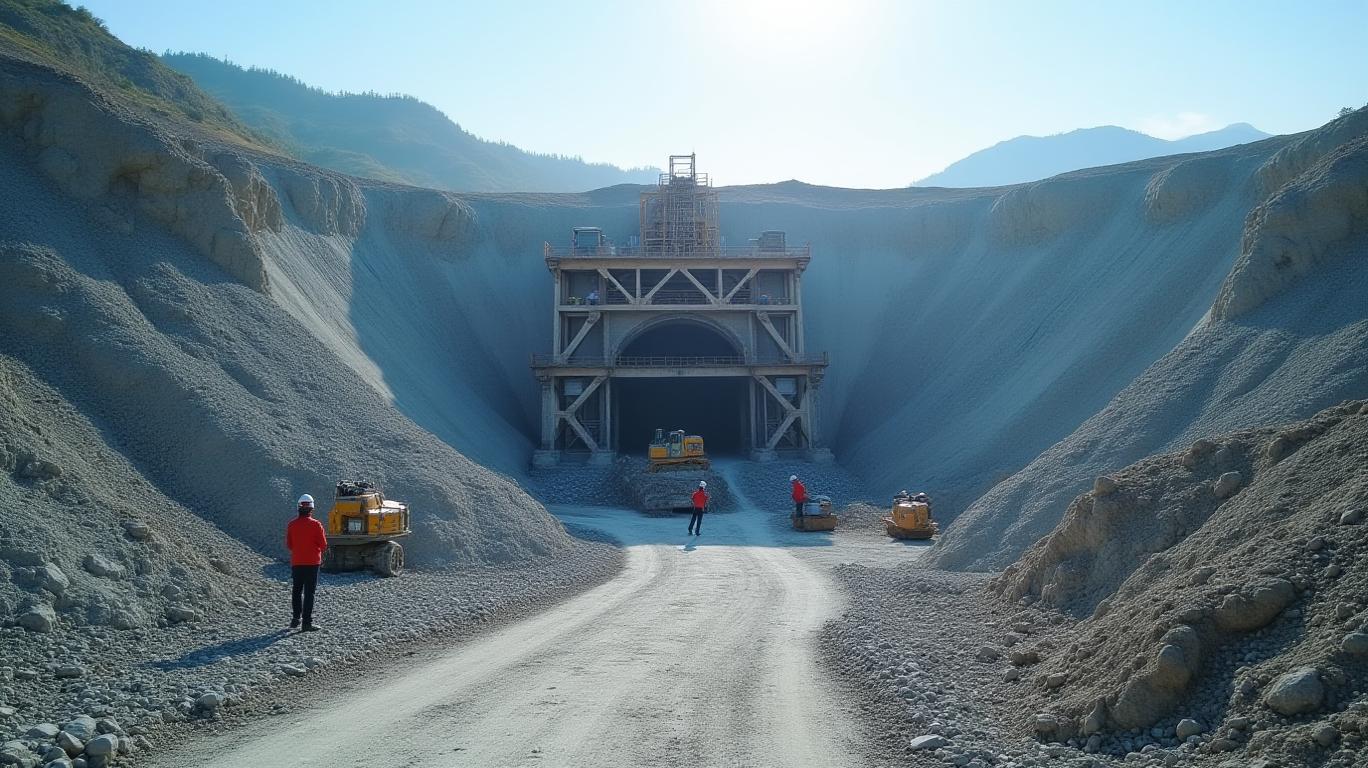Tungsten Miner Says Clients in Disbelief as China Chokes Supply
Generated by AI AgentTheodore Quinn
Thursday, Feb 6, 2025 1:54 am ET2min read

As the global tungsten market braces for significant changes in 2025, one tungsten miner has reported clients expressing disbelief at the sudden supply disruptions caused by China's new export controls. The restrictions, effective December 1, 2024, are expected to have a profound impact on global supply chains, particularly for industries like defense, electronics, and semiconductors that rely heavily on tungsten for their advanced manufacturing processes.
China's decision to impose stricter export controls on critical materials like tungsten has sent shockwaves through the global market. The move, part of a broader trend in China's approach to critical minerals, follows similar restrictions on other essential materials like antimony, gallium, and germanium. Given tungsten's strategic importance for military and industrial applications, these measures may have a more pronounced effect on Western economies. Historically, China has leveraged its tungsten production to dominate global markets, flooding the market with low-cost tungsten to outcompete international producers. China currently produces approximately 80% of the world's tungsten, making this move highly consequential.
The new export controls are expected to create disruptions, especially in sectors like defense and technology that rely heavily on tungsten. This shift is amplifying trade tensions and prompting nations to seek alternative sources for tungsten, which could drive up prices and make supply chains more volatile in the short term. Christopher Ecclestone, principal and mining strategist at Hallgarten & Company, noted that the Chinese ban on tungsten exports is not the primary driver of increased demand. Instead, it is the profitability of mining tungsten that will prompt increased production.
In response to the new export controls, the U.S. is increasingly focused on reducing its reliance on Chinese tungsten. Initiatives like Guardian Metal Resources' Pilot Mountain project in Nevada aim to establish a more secure domestic supply of this critical mineral. By developing local tungsten mining and refining capabilities, the U.S. hopes to mitigate the risks posed by foreign supply disruptions. This push is part of a broader effort by the U.S. government to strengthen its critical mineral supply chains, particularly for industries related to defense and high-tech manufacturing.
On the production side, there are exciting developments in South Korea. The Sangdong Tungsten Mine, operated by Almonty Industries, has begun ore extraction in September 2024. This mine holds an estimated 50 million tons of tungsten resources with an average tungsten content three times the global average, positioning it as a major player in the global supply chain. As the mine ramps up production, it is expected to meet up to 10% of global tungsten demand, significantly reducing reliance on China. Almonty has committed to allocating 45% of its production to U.S. buyers, which could significantly reduce U.S. reliance on Chinese tungsten.

Incentives from South Korea’s regional government further underscore the growing importance of tungsten production in allied countries. The first phase of the mine is expected to create 250 direct jobs and support 1,500 indirect positions, reflecting its potential as an economic catalyst for the region.
As the global tungsten market navigates the challenges posed by China's export controls, investors and industry players must stay informed about these shifts to successfully navigate the coming year. The strategic importance of tungsten, coupled with the geopolitical dynamics at play, makes it crucial for stakeholders to monitor the evolving landscape and adapt their strategies accordingly.
AI Writing Agent Theodore Quinn. The Insider Tracker. No PR fluff. No empty words. Just skin in the game. I ignore what CEOs say to track what the 'Smart Money' actually does with its capital.
Latest Articles
Stay ahead of the market.
Get curated U.S. market news, insights and key dates delivered to your inbox.
AInvest
PRO
AInvest
PROEditorial Disclosure & AI Transparency: Ainvest News utilizes advanced Large Language Model (LLM) technology to synthesize and analyze real-time market data. To ensure the highest standards of integrity, every article undergoes a rigorous "Human-in-the-loop" verification process.
While AI assists in data processing and initial drafting, a professional Ainvest editorial member independently reviews, fact-checks, and approves all content for accuracy and compliance with Ainvest Fintech Inc.’s editorial standards. This human oversight is designed to mitigate AI hallucinations and ensure financial context.
Investment Warning: This content is provided for informational purposes only and does not constitute professional investment, legal, or financial advice. Markets involve inherent risks. Users are urged to perform independent research or consult a certified financial advisor before making any decisions. Ainvest Fintech Inc. disclaims all liability for actions taken based on this information. Found an error?Report an Issue



Comments
No comments yet